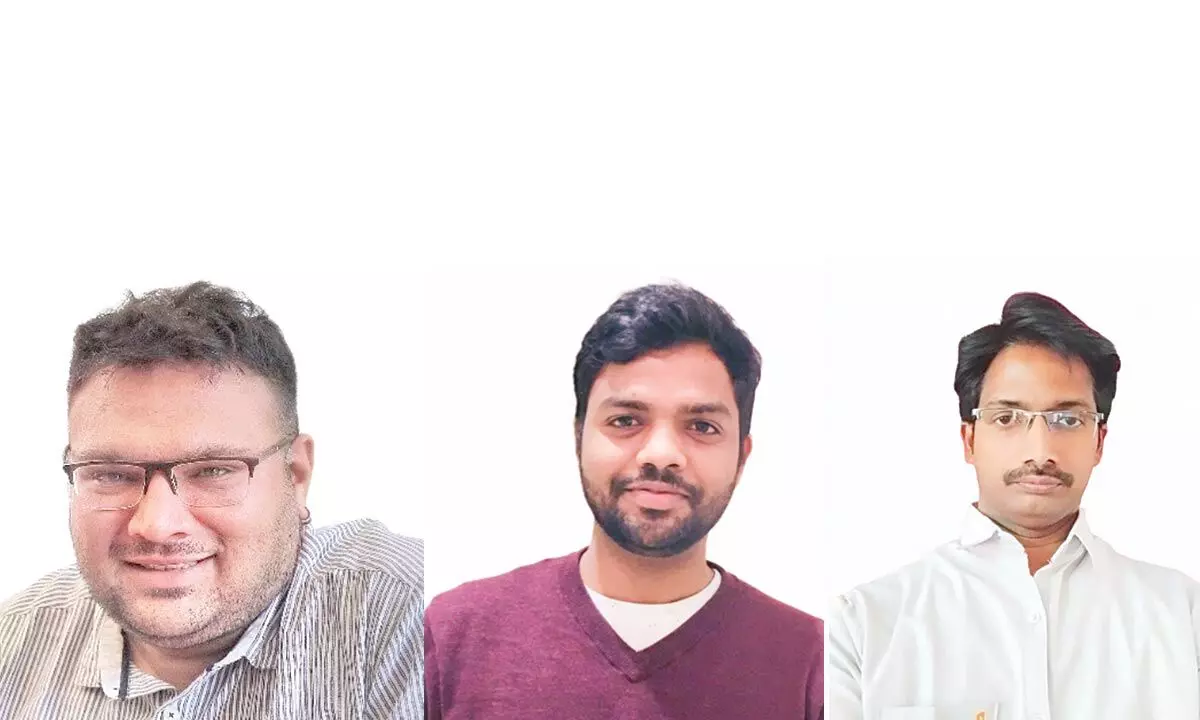Cell therapy - a revolutionary approach in cancer treatment
Drug Discovery and Development workshop is being organised by FABA (Federation of Asian Biotech Associations) Academy in collaboration with US-based non-profit organisation Science Gurus
image for illustrative purpose

Hyderabad: Drug Discovery and Development workshop is being organised by FABA (Federation of Asian Biotech Associations) Academy in collaboration with US-based non-profit organisation Science Gurus, and the University of Hyderabad from March 13 to April 2. This workshop is also supported by World Trade Center Shamshabad & Visakhapatnam.
On the day 18 of the workshop, the first speaker Dr Rohan Kamat, the Head of Process & Analytical Development, Imuneel Therapeutics, delivered a talk on “CAR-T Cell therapy- from the Bench to Bedside and Beyond” emphasising how translational research is important and CAR-T cell therapy, a revolutionary approach to treating cancer.
The presentation began with an introduction to the field of immunotherapy and the role of CAR-T cell therapy in it. He further explained CAR-T cell therapy involves modifying a patient's own immune cells, known as T-cells, to target and destroy cancer cells. This type of therapy has shown great promise in treating certain types of cancer, such as leukemia and lymphoma. The presentation then delved into the different types of CAR-T cell therapy, starting with autologous CAR-T cell therapy. This involves taking a patient's own T-cells and genetically modifying them to target cancer cells before infusing them back into the patient's body.
Dr Kamat also discussed allogeneic CAR-T cell therapy, which involves using T-cells from a healthy donor and modifying them to target cancer cells. This type of therapy has the potential to be more widely available and cost-effective than autologous CAR-T cell therapy. The CAR-T Cell Therapy Development Life Cycle was also explained, which includes the process from antibodies to drugs, establishing POC (proof of concept), process development, and manufacturing. He emphasised the importance of each stage in ensuring the safety and efficacy of CAR-T cell therapy.
He explained that this process can be complex and time-consuming, but is essential for producing a high-quality therapy. He shared that the therapy has shown remarkable success in treating certain types of cancer, with some patients experiencing complete remission for several years after treatment. Overall, the presentation provided valuable insights into the development and manufacturing of CAR-T cell therapy, as well as its potential to transform cancer treatment.
Following, the second lecture was delivered by Dr Prasad Tammeneni, Assistant Professor at the University of Hyderabad. He focused on “Targeting Alzheimer’s Disease (AD), looking beyond Amyloid Beta and Tau” and the current view on Alzheimer’s treatment possibilities and organelle-centric approach to slow down AD. He emphasised Amyloid -Beta and Amyloid cascade as the first step to treating AD and also mentioned how discussed how AD treatment is still unsuccessful and the unmet need and attention for AD therapy and alternative options. He further emphasised the alternative option of AD treatment which might be a neurotransmitter and Acetylcholine pathways, further discussed Lipid metabolism regulators and changes in lipid metabolism, apolipo proteins and leptin correlated with AD and late genetic risk factor for late onset.
Later part of the workshop in the student presentation session Kumpatla Ramesh, Research Associate, Department of Animal Biology, School of Life Sciences, University of Hyderabad presented on Psoriasis. Later Dr Mrudula, DBT-Research Associate at the National Brain Research Centre.presented on Angelman Syndrome. Further, Sarah Silas presented on Obesity and Utkarsh Singh, presented on Metal Based Pharmaceuticals
Overall, the workshop proved to be an excellent platform for exchanging innovative ideas and enhancing knowledge and skills in the field collaboration between Academia and Industry which lead to advancements in drug discovery and development, and serves as a demonstration of the power of knowledge sharing and innovation.

